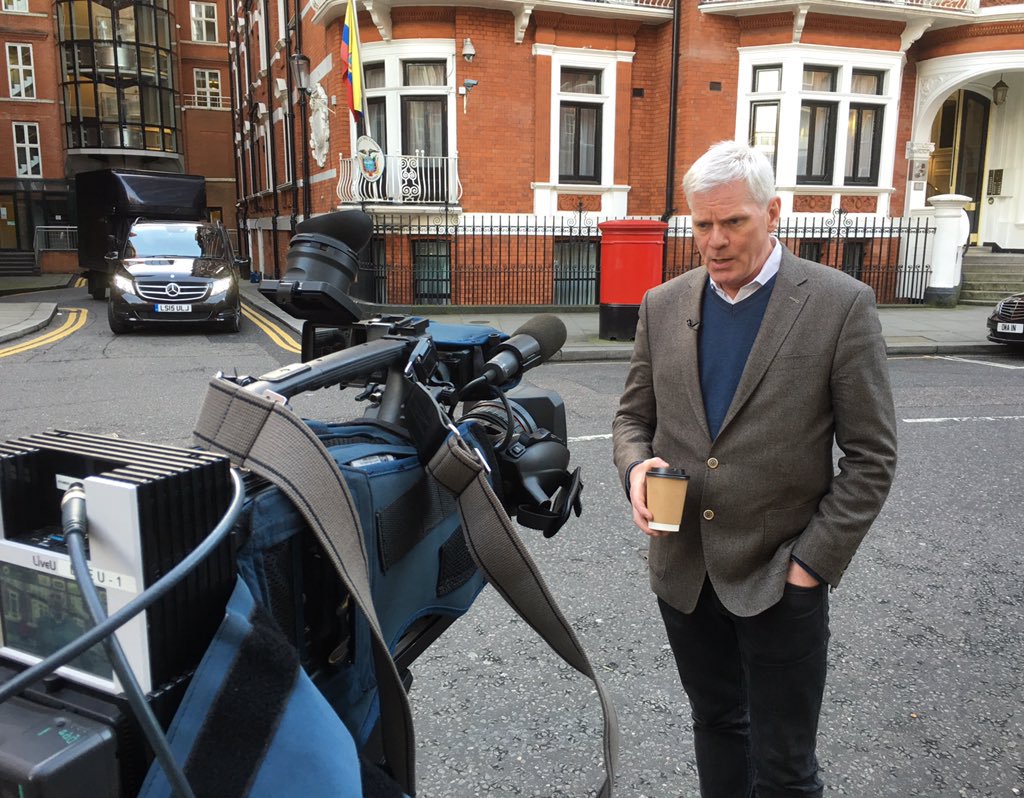"The aim of the trial against Assange is to frighten all journalists"
- The UN special rapporteur on torture, Nils Melzer, has investigated the case of journalist Julian Assange. Swiss journalist Daniel Ryser of independent media Republik first explained in February 2020 the details of this investigation in a rigorous and exhaustive interview. Melzer denounced an alleged little-known international police, judicial and media plot promoted by the United States and the countries at the mercy of their interests.
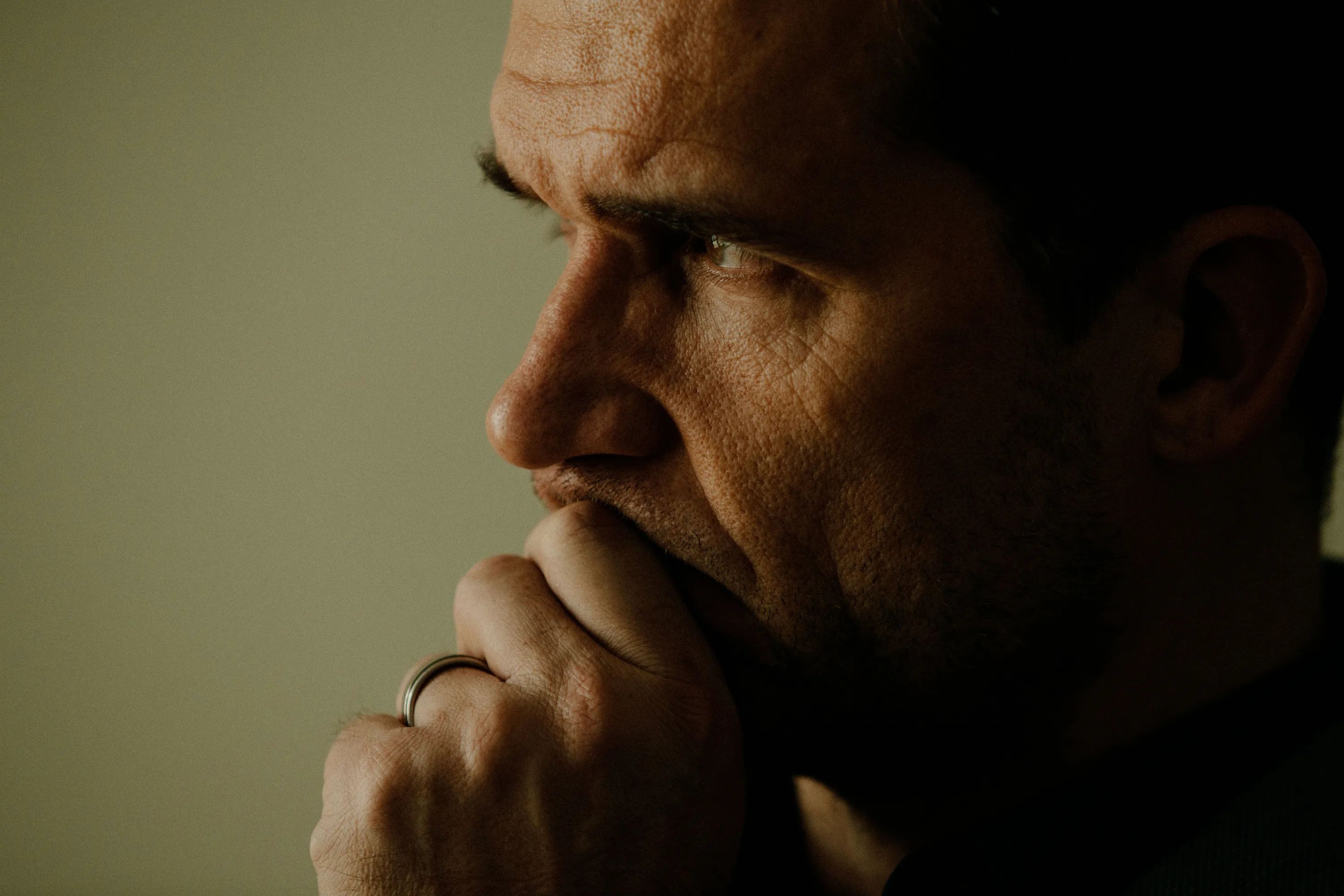
Case of rape invented in Sweden, UK pressure to keep the case, partial judge, seven years of imprisonment at the Ecuadorian Embassy in London, espionage, maximum security prison in COVID-19, psychological torture... All this has been experienced by the Wikileaks creator and his best-known face, Australian journalist and activist Julian Assange, over the past 10 years.
He is currently being held in a prison in London, despite having achieved his first victory last week in the case of extradition to the United States. If it can be considered a triumph, the risk of suicide has been a reason for non-extradition, as the judge has acknowledged. The United States has the resource ready.
Why has the case of Julian Assange aroused interest in the special rapporteur on torture at the UN?The case is within my duties, in three ways: first,
Assange published evidence of systematic torture. But instead of prosecuting those responsible for torture, Assange is being harassed. Secondly, because of the ill-treatment they have given him, he now has the symptoms of psychological torture. Thirdly, they could extradite the United States and Amnesty International has defined as torture the prison conditions imposed there on people like her.
Why didn't you accept the case much earlier?
Imagine a dark room. Suddenly, in a room that represents war criminals and corruption, someone illuminates an elephant. The man holding the outbreak is Assange. The Government, after a short period of shock, has diverted the focus away through allegations of rape.
Suddenly, we all know that Assange is a rapist, a hacker, a spy and a narcissistic player. But the excesses and war crimes he found have disappeared in the dark. I also lost my perspective, despite having experience in this field of work, I had to be more attentive.
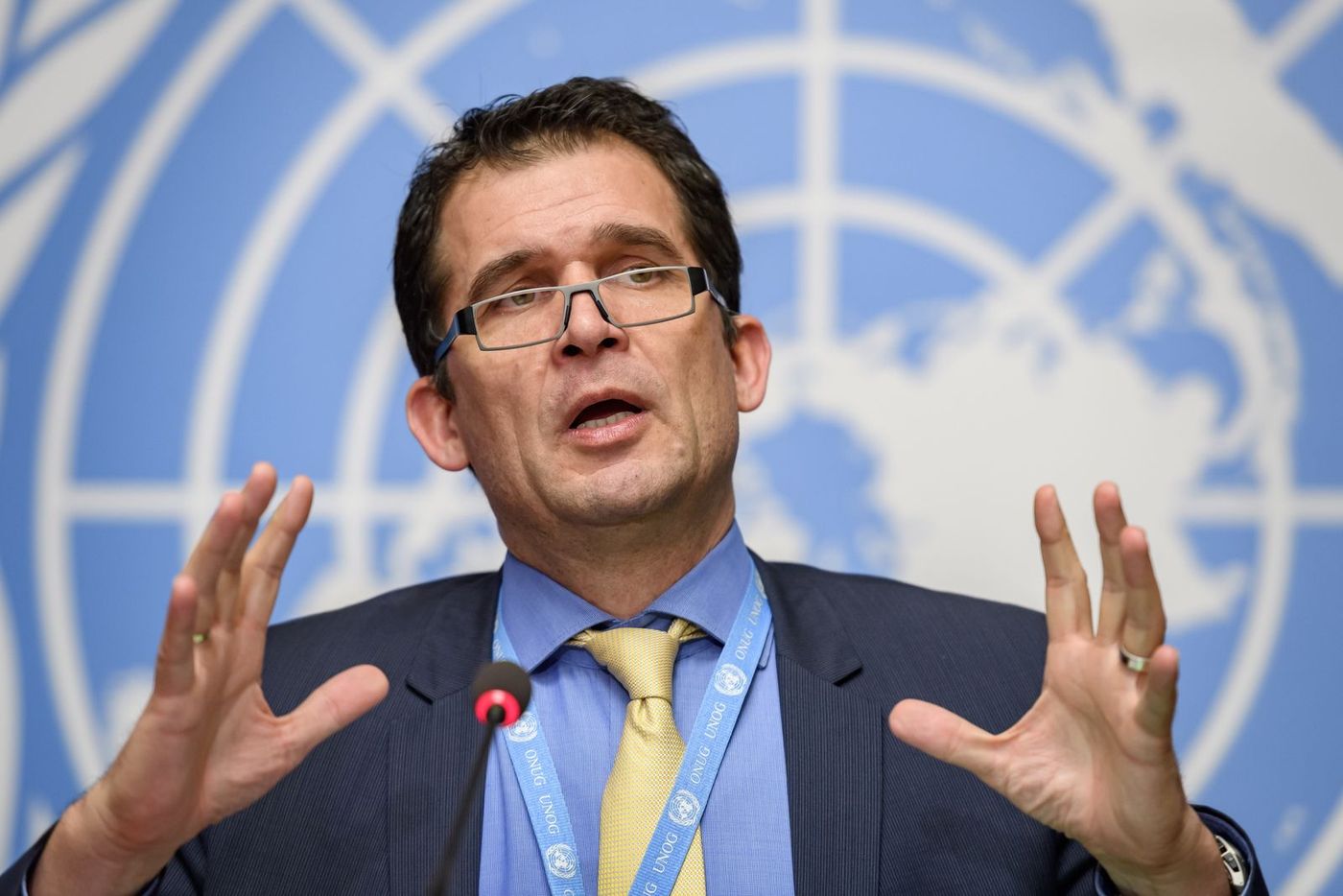
Starting from the beginning: In December 2018, Assange's
lawyers asked me for the intervention. At first I refused. So it seemed to me that Julian Assange was guilty and that he wanted to manipulate me, largely conditioned by the media.
In March 2019, lawyers approached me for the second time. They sent me some important documents and a summary of the case, and I thought my professional need required at least one look at the material.
What happened then?
It was instantly discovered that something was not right. My long experience in legal affairs told me that there was a contradiction that made no sense: if no charge has been filed, why has an investigation been opened against a person for nine years for a crime of rape?
Is that extraordinary?
I have never seen such a case. Anyone can start a pre-trial investigation against another person if they are brought before the police and charged with a crime. However, the Swedish authorities never showed interest in the testimony of Assange, who was sentenced to death in Sweden. They had expressly left it in the limbo. Imagine that for nine and a half years the entire state apparatus and the media are accusing you of raping a woman, unable to defend yourself, because no charge was ever filed.
"What Wikileaks did is a threat to the political elites of the United States, Britain, France and Russia."
I speak Swedish fluently and I was able to read all the original documents. I couldn't believe what I was reading: according to the woman's testimony, there was never rape. 20 August 2010, S.W. A woman named A.A. entered the Stockholm police station and said she had had sex with Julian Assange, but she did not use condoms. He said he was concerned about the possible spread of HIV and wanted to know if he could force Assange to undergo an HIV test. Even before the end of the police interrogation S.W.ri, Assange was informed that he would be arrested on suspicion of rape. S.W. He was surprised and refused to continue the interrogation. During her stay at the police station, the woman sent a message to a friend in which she assured her that she did not want to incriminate Assange, that she just wanted her to undergo an HIV test, but that apparently the Police’s intention was to “catch Assange”. Two hours later, the case came out in a newspaper. Today, we know that prosecutors leaked the information to the press and did it without quoting Assange.
And not only that: then the Stockholm Police changed the testimony of the woman so that, without the intervention of the woman, she could somehow represent the rape.
Why would the Swedish authorities do this? The
moment is crucial: at the end of July, Wikileaks, in collaboration with various international media, published the War of Afghanistan journal. It was one of the largest leaks of information in the history of the United States Army. The United States immediately demanded that its allies take care of stitching Assange into criminal causes against Iran. Stratford, a security advisor working for the US Government, advised US officials to do the same: Accuse Assange of all kinds of criminal cases for 25 years.

Where does the story come from that Assange wanted to flee Swedish justice?
This version was made and is not consistent with the facts. If he had tried to hide himself, he would not have volunteered to the police station.
Assange has already expressed on several occasions, through his lawyer, his desire to respond to the accusations against him. The chief prosecutor continued to delay the issue. Once, because he didn't do well with his schedule, or another, because the police officer was sick. Until, as Assange was going to attend a speech in Berlin, he asked if his lawyer had permission to leave the country. The public prosecutor's office gave him, in writing, permission to leave Sweden for a short time.
The day Julian Assange left
Sweden, at a time when it was unclear whether he would leave in the short or long term, an arrest warrant was issued. Scandinavian travelled from Stockholm to Berlin on a flight from Airlines, where he travelled from Moscow. During the flight, their laptops disappeared from checked baggage. In this case, things happen that aren't always possible, unless you look at them from another angle.
Assange continued to London, but did not attempt to hide from the judiciary. Through the Swedish lawyer, he offered Swedish prosecutors a number of dates for holding the consultation: Those letters exist. The following happened: Assange learns that a secret criminal case has been opened against him in the United States. From that point on, Assange’s lawyer began to say that his client was willing to testify in Sweden, but demanded diplomatic assurances that Sweden would not extradite to the United States.

Could this really happen?
Totally. Years earlier, two asylum seekers, registered in Sweden, were handed over by Swedish security personnel to the CIA without legal procedure. The abuses began at Stockholm airport, where they were mistreated, drugged and transferred to Egypt. There they were tortured. We don't know if they were the only cases, but we know these cases because those two people survived. Sweden had to pay half a million dollars each for compensation.
Did Sweden accept Assange’s requests?
According to the lawyers, during the seven years that Assange lived at the Embassy of Ecuador, Assange made over 30 travel offers to Sweden in exchange for a guarantee of non-extradition to the United States. The Swedes refused to lend the endorsement, claiming that the United States had not submitted a formal extradition request against the Asian country.
It's another symptom that Sweden never had any interest in finding the truth. These diplomatic assurances are common practice at the international level. Specifically, there is a cooperation agreement between the United Kingdom and Sweden for these judicial matters, according to which Swedish officials can travel to the United Kingdom for consultations, even the other way round, or they can do so by videoconference.
During this period, a total of 44 such consultations took place between Sweden and the United Kingdom. The case of Julian Assange was an exception, in which Sweden assured that its presence in Sweden was vital in order to be able to travel personally to Sweden.
Why did this happen?
The only explanation is that they wanted to be arrested in order to be extradited to the United States, so they refused to give diplomatic assurances and hold a referendum in London. The number of infringements recorded in Sweden in the first weeks of prior criminal investigation is alarming. The State imposed a legal adviser on women and told them that the criminal interpretation of what they lived was in the hands of the State and not in their hands.
But for more than five years, the Swedish Public Prosecutor’s Office avoided questioning Assange about the alleged violation, until his lawyers asked the Swedish Supreme Court to force the Public Prosecutor’s Office to act to file charges or close the case. When the Swedes told him they might be forced to leave the case to the United Kingdom, the British responded with concern: Don't dare to go back!
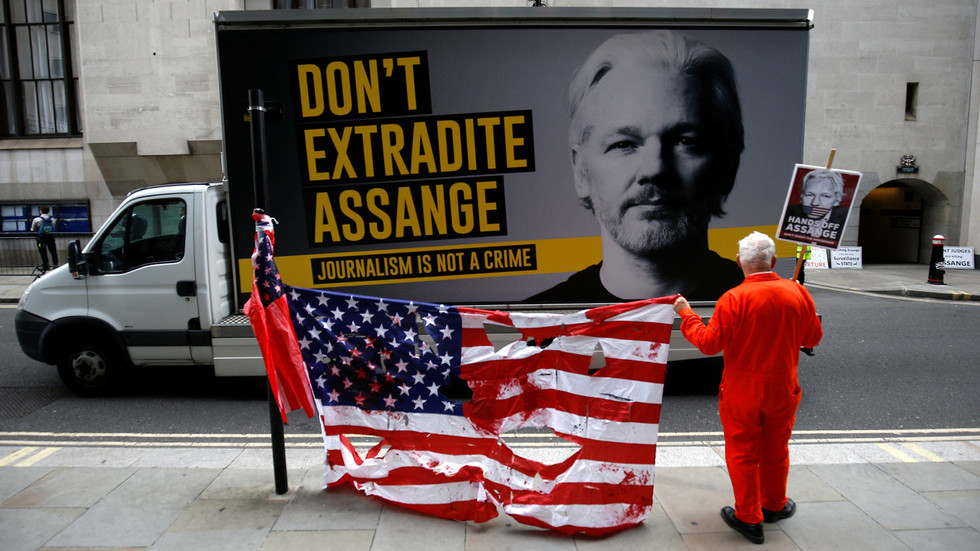
Why were the British so concerned that the Swedes did not close the case in one way or another? We must stop
thinking that there was an interest in investigating a sexual crime. What Wikileaks did is a threat to the political elites of the United States, Britain, France and Russia.
Take the archetypal case of Wikileaks, which was obtained from the leaks of information provided by Chelsea Manning: Side homicide video. On 5 April 2010, Wikileas published a video containing the testimony of the United States Army. There you see how U.S. soldiers killed several people in Baghdad, including two journalists from the Reuters agency. I have worked for a long time in the International Committee of the Red Cross as a legal adviser and representative in the fields of war and I can tell you, of course, that the video documents a war crime.
“He’s hurt,” says an American soldier. “I’m shooting.” And then they laugh. Then comes a truck to the area to save the wounded. The driver is with his two children. Soldiers are heard to say: “Well, it’s their fault for bringing their children to war.” And then they shoot them.
What should constitutional democracies do in this situation?
Constitutional democracy would investigate Chelsea Manning for violating official secrecy, as the video was passed on to Assange. However, he will not go in search of Assange, who published the video because it was in the public interest, according to the usual practice of investigative journalism. Above all, however, a constitutional democracy could investigate and punish criminal wars. These soldiers should be in jail. But no criminal investigations started.
On the contrary, the man who reported to the public in London is in pretrial detention and in the United States may be sentenced to 175 years of imprisonment rcel.Para. At the Yugoslavia Tribunal, our main criminals were sentenced to 45 years in prison. Thinking they're never going to be punished, the powerful can kill without fear. Journalism has become espionage. Telling the same truth is becoming a crime.
If Assange is extradited, what will he find in the United States?
It shall not be the subject of any judgment under the rule of law. That is another reason why extradition is not accepted. Assange will be tried in Alexandria, Virginia, at the famous "Espionage Tribunal", where all national security cases will be tried by the United States. The location of the Tribunal was not randomly chosen, as the jury members are to be elected from the local population and 85 per cent of the population of Alexandria works in organizations related to national security: In the CIA, in the NSA, in the Department of Defense and in the Department of State.
Cases are always made before the same judge, behind closed doors and with all evidence hidden. In these cases, they have never acquitted anyone. As a result, most of the defendants come to an agreement, accepting some of the blame for being punished mildly.
In April of this year, the UK Police ordered Julian Assange to leave the Ecuadorian Embassy.
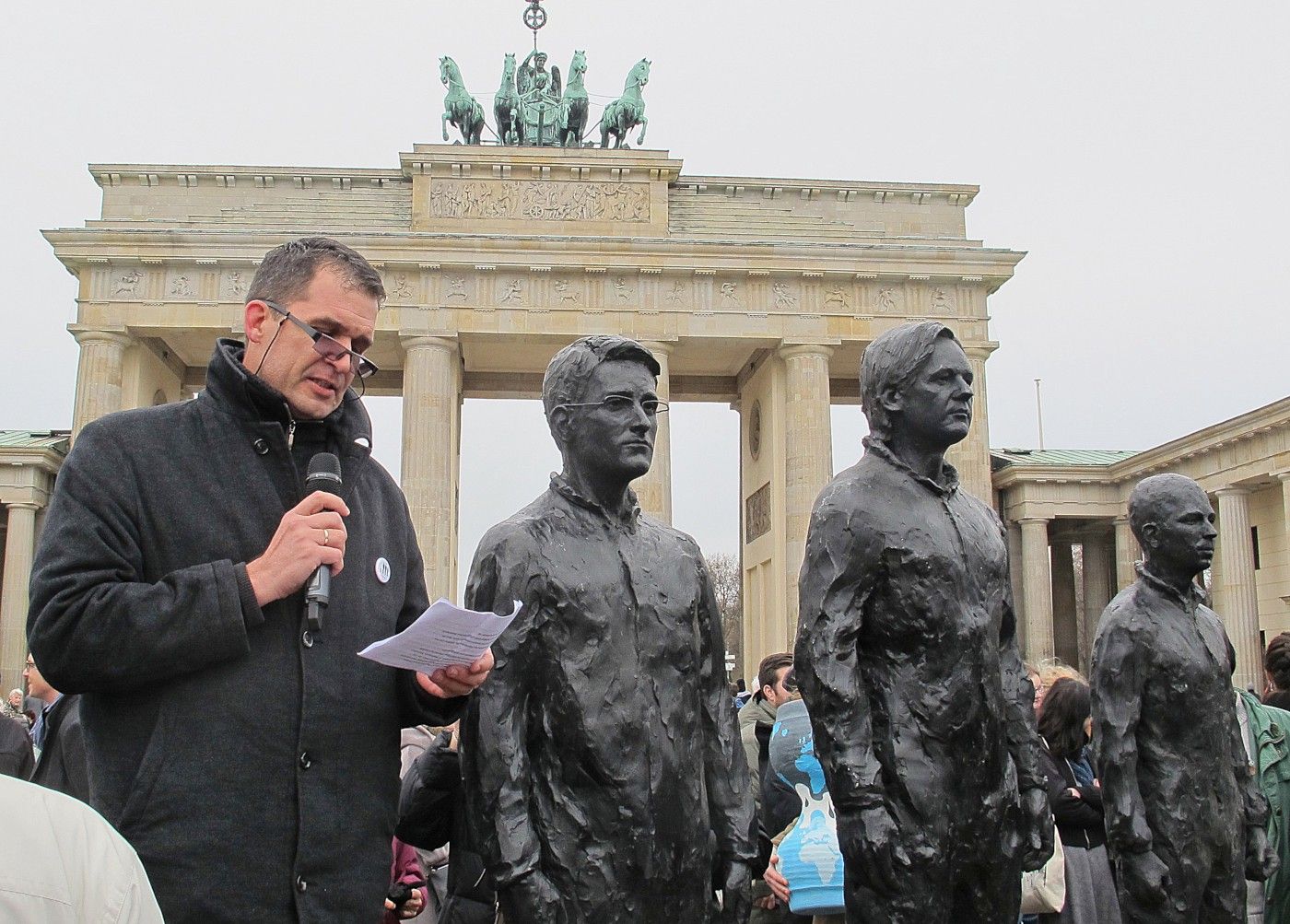
What do you think?
In 2017, the new government of Ecuador was elected. After that, the United States wrote a letter informing them that they were desiring to cooperate with Ecuador in the conflict. There was obviously a lot of money at stake, but there was an obstacle along the way: Julian Assange.
The expulsion from the embassy took place from morning to night, without any legal procedure. Assange did not have the possibility of making a declaration or resorting to legal proceedings. The British arrested him and subjected him on the same day to a British judge, who was convicted of violating the conditions of parole.
Assange barely had 15 minutes to prepare the case with his lawyer, who has been arrested for a shot. The same trial, for its part, lasted about 15 minutes, according to the same source. Assange gave a single sentence throughout the process: “I am innocent.” The judge turned to him and said, “You’re a narcissist unable to see beyond your interests. For violating parole, I consider you guilty.”
If I get it right, from the very beginning Julian Assange had no chance.
That's the key. I don't mean Julian Assange is an angel or a hero. This is not the case. We are talking about human rights and not about the rights of heroes or angels. Assange is a person who has the right to defend himself and to be treated with humanity. Regardless of what he is accused of, Assange is entitled to a fair trial. But he has been voluntarily denied this right: Sweden, United States, Great Britain and Ecuador. Instead, for almost seven years, they let him rot in the limbo of a room.
It is clear that the case of Assange is political persecution. In Great Britain, offences for violation of parole are very rarely punished by sending them to prison, usually fines. Assange, for his part, was quickly sentenced to 50 weeks in prison for a crime of murder in a high-security prison. It is a clearly exaggerated punishment and had only one objective: Keep Assange tied for as long as needed while the U.S. United States He prepares a case of espionage against him.
As the UN special rapporteur on torture, what did you say about your prison conditions?The United Kingdom has not given Julian
Assange permission to contact his lawyers in the United States. Your British lawyer has also complained that you do not have the possibility to be with the customer to examine the documents and legal evidence that you have. In October he was not allowed to have documents in his file in his cell. They denied him the fundamental right to prepare his defence, as guaranteed by the European Convention on Human Rights. As a punishment for violation of parole, it is absolutely disproportionate. In addition, he is in almost total confinement in jail. As soon as he leaves his cell, the hallways are vacated so that he does not have contact with other prisoners.
At what point does prison become torture?
Sweden, Great Britain, Ecuador and the United States have, in particular, psychologically tortured Julian Assange. Sweden has never had an interest in finding the truth, or even in helping the women who filed the initial complaint, according to the same sources. I had only intended to put Assange against the sword and the wall.
Judicial proceedings are being abused to bring a person into a situation that cannot be defended. In addition, there are surveillance measures, insults, humiliations and political attacks in these countries, as well as death threats. The continued abuse of power by states has been a serious state of stress and anxiety for Assange, the consequences of which are clear: cognitive and neurological damage.
In May 2019, I visited Assange in the London cell with two doctors who are specialists in the forensic and psychological study of victims of torture and with great experience. Both physicians made a clear diagnosis: Julian Assange has the usual symptoms of psychological torture. If you do not receive prompt protection, your health may quickly deteriorate and you may die.
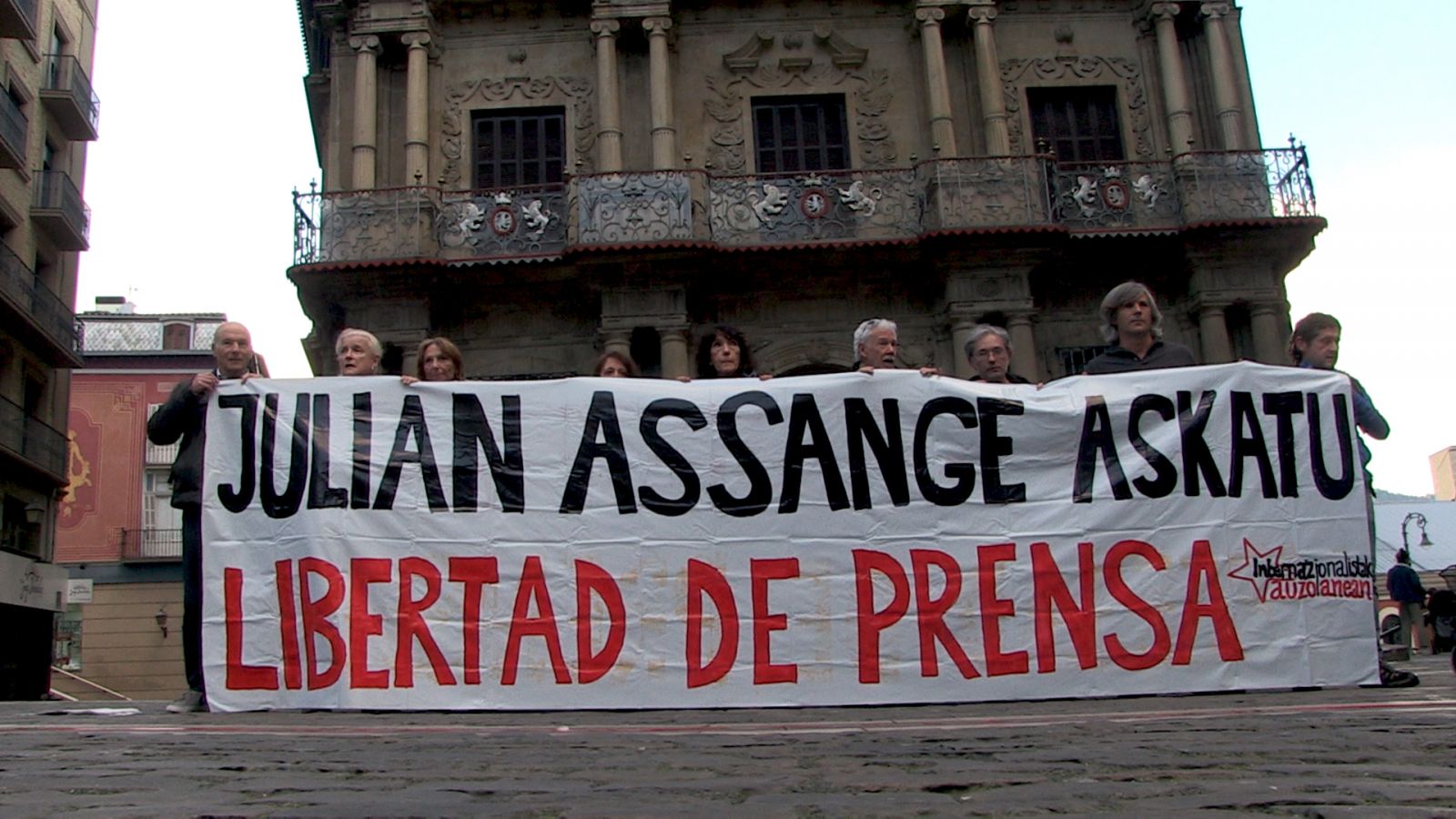
Half a year after his admission to pre-trial detention in Britain, Sweden silently abandoned the case against Assange, after more than nine years. Why? The
Swedish state was for almost a decade publicly presenting Julian Assange as a sex offender. In November 2019, suddenly, the case was abandoned.
But synchronization was not casual: on 11 November an official document sent by me to the Swedish Government two months earlier was published. In the document, I asked the government to give explanations on about 50 issues. How is it possible to make public the suspicion without questioning the defendant? How can you say that there was a violation, although the woman challenges that version of the facts?
On the day the document was made public, I received the miserable response from Sweden: the government is not going to say anything else about this case.
What does that answer mean?
It's a way to recognize their guilt.
How?When a country
like Sweden refuses to answer the questions about torture posed by the UN Special Rapporteur, the government is demonstrating that its behaviour is illegal and that it does not want to take any responsibility.
The same applies to the British: After my visit to Assange in May 2019, it took six months for me to answer. That one-page response limited itself to rejecting all allegations of torture and errors in legal proceedings.
Doing things like that, what's the point of my work? I am a special United Nations narrator on torture. I have a command to ask you clear questions and to demand answers. None of these UN Member States undertook any investigation, did not answer my questions or showed interest in dialogue.
What does it mean that the UN Member States do not want to report to their special rapporteur on torture?
That is a matter that was previously agreed upon. The trial will be used as a spectacle to set an example to Julian Assange, who has been sentenced to prison. The aim is to frighten other journalists. Fear, by the way, is one of the main objectives of torture around the world. The message for all is as follows: If you do what Wikileaks does, this will happen to you.
It's a very dangerous model. Those who obtain confidential information from governments or companies redirect that information to Wikileaks, but the complainant remains anonymous. The reaction of the States demonstrates how great the threat is: four democratic countries joined forces (the United States, Ecuador, Sweden and the United Kingdom) using their power to represent a man as a monster and then burn him in the stake without anyone protesting. The case is a scandal and involves the collapse of the rule of law in the West. If Julian Assange is sentenced to death, press freedom will be punished with the death penalty.
What could this precedent influence the future of journalism?
On a practical level, it means that you, as a journalist, have to defend yourself. In fact, if investigative journalism is classified as espionage and can be persecuted around the world, censorship and tyranny will prevail. A killer system is being created before our very eyes. War and torture crimes are not being prosecuted.
In some Youtube videos, US soldiers are proud of how Iraqi women are being pushed to suicide through systematic rape. Nobody investigates it. At the same time, a person who uncovers such cases is threatening a sentence of 175 years ' imprisonment. For a whole decade, the Foral Police has inflicted upon him numerous allegations that cannot be proved. It is being killed and nobody is held responsible.
Wikileaks is the result of this excessive secrecy that reflects the lack of transparency of our modern political system. In some areas, of course, secrecy can be fundamental. But if we do not know what our governments are doing, what criteria they are following, if crimes are not investigated, it is a grave danger to the whole of society.
Human beings are not democratic on their own. Power rots if it's not monitored. Corruption occurs when we do not strive to control power.
What are the consequences?As a UN
special rapporteur on torture and before, as a representative of the Red Cross, I have seen many horrors and violence, and I have seen how quickly peaceful countries such as Yugoslavia or Rwanda can become unfaithful.
At the root of the cases are always the lack of transparency and the immense political or economic power, along with the innocence, indifference and flexibility of the population. What has always happened to the other suddenly (torture, rape, expulsion and murder with impunity) can easily happen to us or to our children. And nobody cares. I swear it is.
In 2010, WikiLeaks, with the collaboration of mass media, published one of the widest leaks in the history of "secret" documents. Over 700,000 files of the U.S. intelligence services, which evidenced the opaque and cruel diplomatic and military actions of many governments and... [+]























